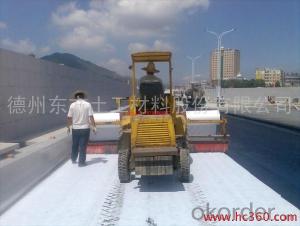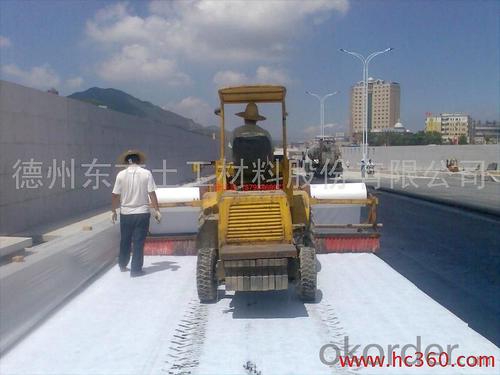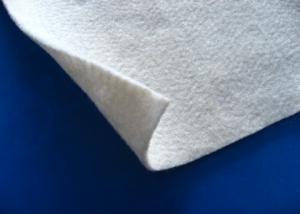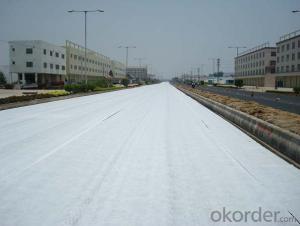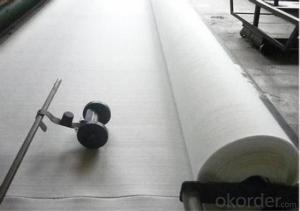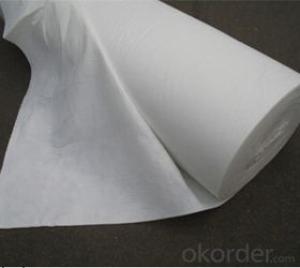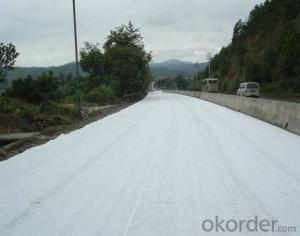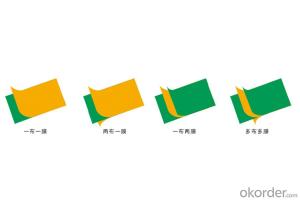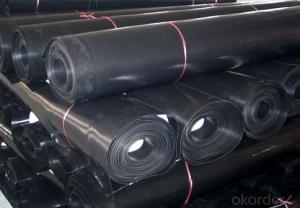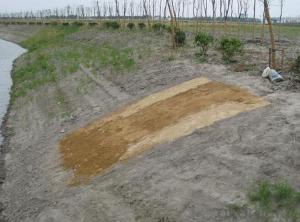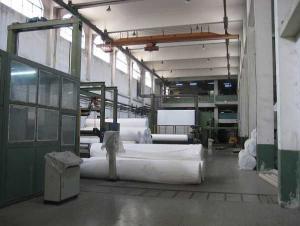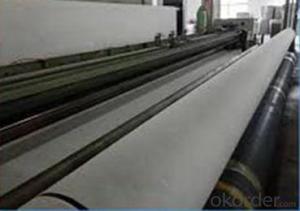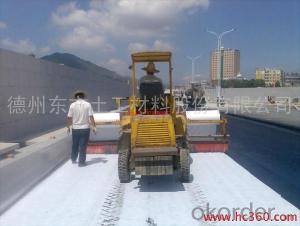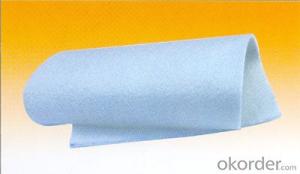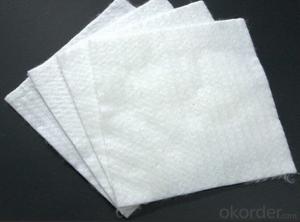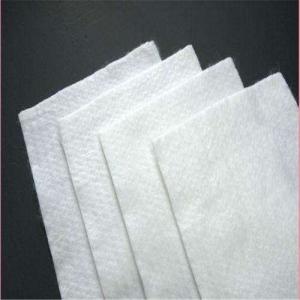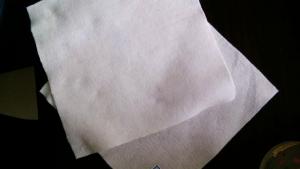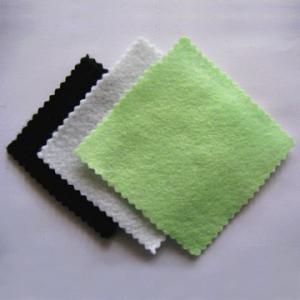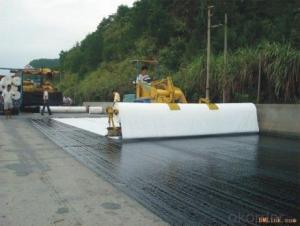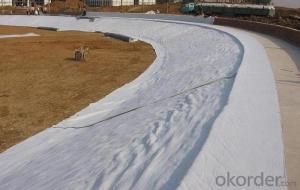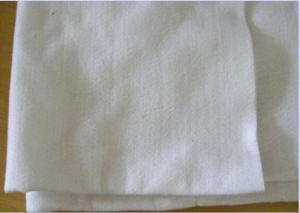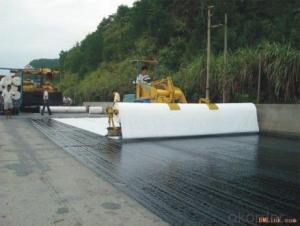Geotextile Driveway Non Woven Needle Punched Polyester Geotextile for Road Construction
- Loading Port:
- Qingdao
- Payment Terms:
- TT OR LC
- Min Order Qty:
- 10000 m²
- Supply Capability:
- 500000 m²/month
OKorder Service Pledge
OKorder Financial Service
You Might Also Like
Non Woven Needle Punched Polyester Geotextile Images
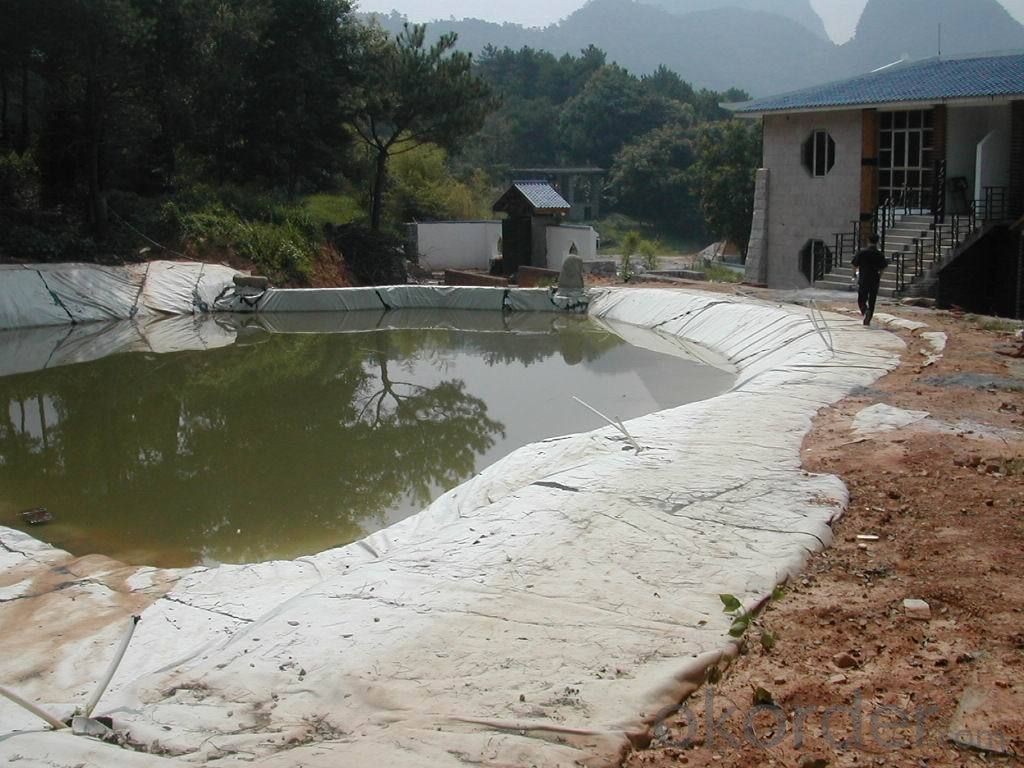
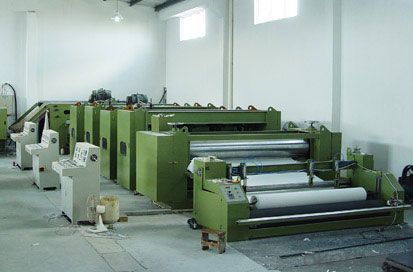
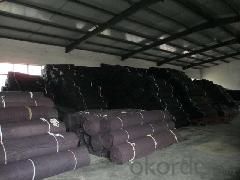
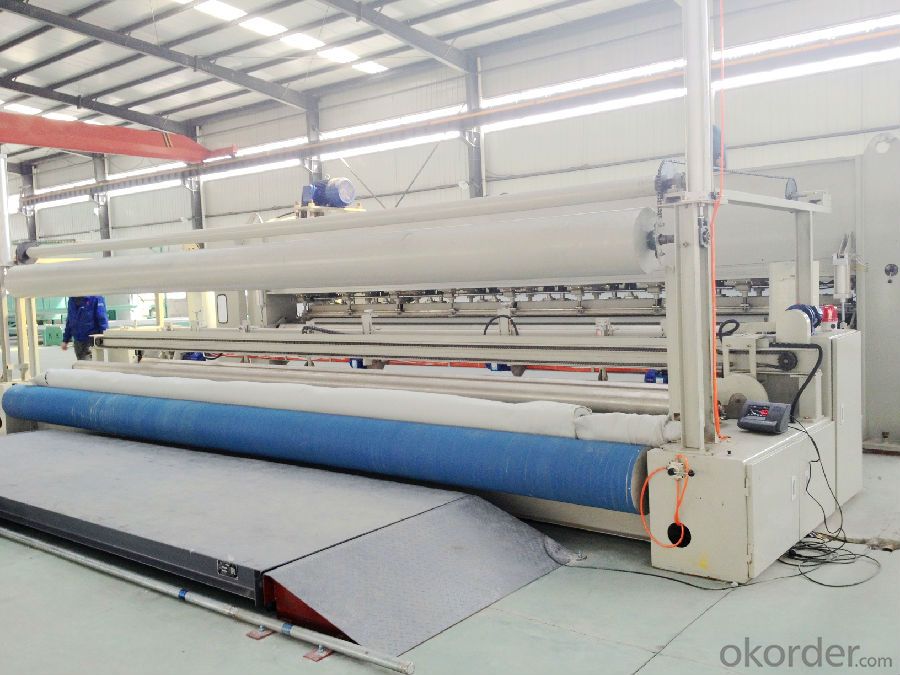
Non Woven Needle Punched Polyester Geotextile Specification:
item | unit | Requirement data | ||||||||||
Mass per square meter | g/m2 | 100 | 150 | 200 | 250 | 300 | 350 | 400 | 450 | 500 | 600 | 800 |
Thickness | mm | 0.9 | 1.3 | 1.7 | 2.1 | 2.4 | 2.7 | 3.0 | 3.3 | 3.6 | 4.1 | 5.0 |
Tensile at break | KN/M | 2.5 | 4.5 | 6.5 | 8.0 | 9.5 | 11.0 | 12.5 | 14.0 | 16.0 | 19.0 | 25.0 |
Tear strength | KN≥ | 0.08 | 0.12 | 0.16 | 0.20 | 0.24 | 0.28 | 0.33 | 0.38 | 0.42 | 0.46 | 0.60 |
Elongation at break | % | 91 | 89 | 88 | 85 | 75 | 60 | 65 | 57 | 59 | 61 | 59 |
CBR | KN≥ | 0.3 | 0.6 | 0.9 | 1.2 | 1.5 | 1.8 | 2.1 | 2.4 | 2.7 | 3.2 | 4.0 |
Pore size microns | mm | 0.15 | 0.14 | 0.13 | 0.12 | 0.11 | 0.10 | 0.09 | 0.08 | 0.08 | 0.07 | 0.07 |
Flow rate | mm | Kx (10-1-10-3) | ||||||||||
FAQ
We have organized several common questions for our clients,may help you sincerely:
Q1: How about your company?
A1:Our company are one of the largest geosynthetic products supplier in the world.We have the products experience more than 20 years.Already export to USA/Germeny/Australia/Zambia/Brazil etc.more than 20 countries.Almost 10years.Our products including Geocell/Fiberglass Geogrid/Geomembrane/Geotextile/Geonet etc.
Q2:Can you send samples to us ?
A2:Yes , free samples could be provided , but customer need pay for the freight cost .
After order placed , the freight charge could be refund .
Q3:What’s your Payment term ?
A3:T/T , L/C , Western Union,Paypal ...
Q4:What’s your manufacture process time ?
A4:Usually within 20 days
- Q: Can geotextiles be used in mining operations?
- Yes, geotextiles can be used in mining operations. Geotextiles are commonly used in mining to reinforce soil and prevent erosion, control sedimentation, and provide stability to slopes and embankments. They are also used for filtration, drainage, and separation purposes in mining applications.
- Q: Geotextile, one ton, replaced by a square meter how much money formula
- First look at how many grams of cloth, and then in addition to the number of square feet on how much money and then divided by the square to know how much money a square I plant geotextile
- Q: What is the effect of temperature on geotextile performance?
- The effect of temperature on geotextile performance can vary depending on the specific type and composition of the geotextile. In general, higher temperatures can cause geotextiles to become more flexible and pliable, which can enhance their ability to conform to irregular surfaces and provide better soil stabilization. However, extremely high temperatures can also lead to thermal degradation and loss of strength in certain geotextiles. Conversely, colder temperatures can make geotextiles stiffer and less flexible, potentially reducing their ability to perform certain functions such as filtration or separation. Therefore, it is crucial to consider the anticipated temperature conditions when selecting and designing geotextiles for specific applications.
- Q: How do geotextiles prevent soil contamination?
- Geotextiles prevent soil contamination by acting as a barrier that separates the soil from potentially harmful substances, such as pollutants or contaminants. It helps to filter and retain these substances, preventing them from leaching into the soil and affecting its quality. Geotextiles also aid in erosion control, reducing the risk of soil contamination caused by sediment runoff.
- Q: How do geotextiles help in preventing clogging of drainage systems?
- Geotextiles help in preventing clogging of drainage systems by acting as a filter between the soil and the drainage pipes, allowing water to pass through while preventing the passage of fine particles that could clog the system. They provide a barrier that retains the soil and sediment, reducing the risk of clogging and ensuring the proper functioning of the drainage system.
- Q: Can geotextiles be used in embankment reinforcement?
- Yes, geotextiles can be used in embankment reinforcement. Geotextiles are often used in civil engineering projects to improve the stability and strength of earth structures, including embankments. They can effectively distribute loads, provide soil separation and filtration, and enhance the overall performance and longevity of embankments.
- Q: What are the factors to consider when selecting geotextiles for embankment stabilization?
- When selecting geotextiles for embankment stabilization, there are several important factors to consider. These include the strength and durability of the geotextile, its filtration and drainage properties, its compatibility with the soil and other materials, and its ability to withstand environmental conditions such as UV exposure and chemical exposure. Additionally, factors such as cost, installation requirements, and project-specific needs should also be taken into account.
- Q: Geotextile tensile strength of the maximum load is generally how much
- Hello, this depends on the geotextile specifications, different specifications, it is the largest pull up the load is not the same. Huazhi geotextile material manufacturers can not answer for you to ask me
- Q: Geotextile filter layer set which quota
- Filter cloth, monofilament filter cloth, polypropylene filter cloth, nylon green monofilament
- Q: What are the specifications for geotextiles in wastewater treatment projects?
- The specifications for geotextiles in wastewater treatment projects typically involve factors such as the material type, weight, thickness, permeability, and strength. These geotextiles are commonly required to have high tensile strength, puncture resistance, and durability to withstand the harsh conditions of wastewater treatment facilities. Additionally, they should have a specific permeability to allow for proper filtration and drainage of water while preventing the passage of fine particles.
Send your message to us
Geotextile Driveway Non Woven Needle Punched Polyester Geotextile for Road Construction
- Loading Port:
- Qingdao
- Payment Terms:
- TT OR LC
- Min Order Qty:
- 10000 m²
- Supply Capability:
- 500000 m²/month
OKorder Service Pledge
OKorder Financial Service
Similar products
Hot products
Hot Searches
Related keywords
